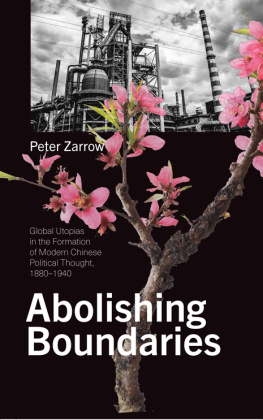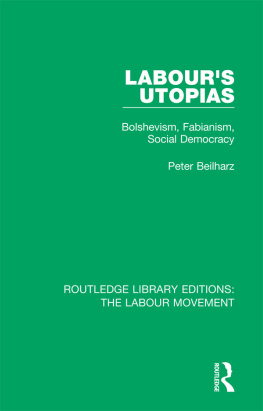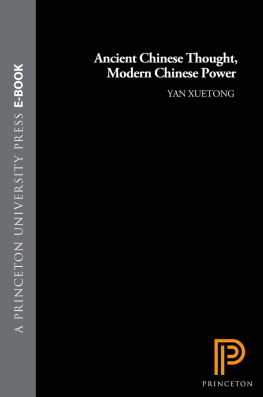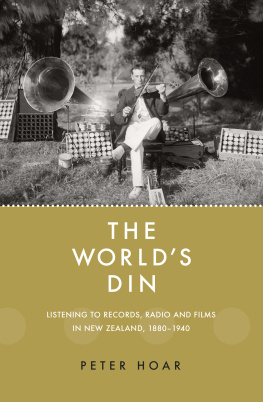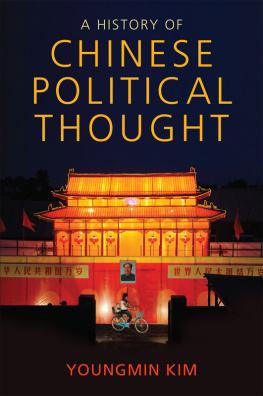Published by State University of New York Press, Albany
2021 State University of New York
All rights reserved
Printed in the United States of America
No part of this book may be used or reproduced in any manner whatsoever without written permission. No part of this book may be stored in a retrieval system or transmitted in any form or by any means including electronic, electrostatic, magnetic tape, mechanical, photocopying, recording, or otherwise without the prior permission in writing of the publisher.
For information, contact State University of New York Press, Albany, NY
www.sunypress.edu
Library of Congress Cataloging-in-Publication Data
Names: Zarrow, Peter Gue, author.
Title: Abolishing boundaries : global utopias in the formation of modern Chinese political thought, 18801940 / Peter Zarrow.
Description: Albany : State University of New York, 2021. | Series: SUNY series in Chinese philosophy and culture | Includes bibliographical references and index.
Identifiers: LCCN 2020039949 (print) | LCCN 2020039950 (ebook) | ISBN 9781438482835 (hardcover : alk. paper) | ISBN 9781438482842 (ebook)
Subjects: LCSH: Political scienceChinaPhilosophyHistory19th century. | Political scienceChinaPhilosophyHistory20th century. | UtopiasPhilosophy. | Kang, Youwei, 18581927. | Cai, Yuanpei, 18681940. | Chen, Duxiu, 18791942. | Hu, Shi, 18911962.
Classification: LCC JA84.C6 Z37 2021 (print) | LCC JA84.C6 (ebook) | DDC 320.0951/09041dc23
LC record available at https://lccn.loc.gov/2020039949
LC ebook record available at https://lccn.loc.gov/2020039950
10 9 8 7 6 5 4 3 2 1
1
Ways to Conceptualize Utopianism
An Introduction
The new society of the new era that is our ideal is honest, progressive, positive, free, equal, creative, beautiful, good, and peaceful, and it is marked by loving mutual aid, joyful labor, and benefits for the whole society. We hope everything that is hypocritical, conservative, passive, restrictive, privileged, conventional, ugly, and detestable, and is marked by war, conflict, inertia, depression, and benefits for the few will gradually shrink and disappear.
We youth of the new society naturally respect labor, but labor should match the individuals talents and interests, and become free, joyful, artistic, and beautiful. A sacred thing should not be made into a requirement for sheer survival. Although we do not hold a superstitious faith that politics is omnipotent, we acknowledge that politics is an important form of our common life, and we believe true democracy certainly means that political power is distributed among the whole people.
New Youth , 1919
All in all, utopianism did not survive the twentieth century in good shape. The great slaughters and prison-houses of the twentieth century are associated with the utopian promises of Stalinism and Maoism to make omelets by breaking eggs. Even fascists promised a utopia of sorts, at least for the obedient and racially pure. As soon as the Berlin Wall Nonetheless, utopian thinking has hardly disappeared, and plans to radically reform existing conditions are ubiquitous. Indeed, it is hard to find people who entirely lack at least some kind of utopian dreama peaceful world without war, or a prosperous world without poverty, a spiritual world devoted to the true faith, or a democratic world based on the principle of equalityeven if they cannot envision how this world might come into existence. Defenders of utopianism note that it provides a salutary critique of the status quo. Utopias denaturalize existing conditions that might otherwise simply be taken for granted. They show that this world is not necessarily the only possible world. And at times of crisis, utopianism provides emotional escape and even an approximately practical guide to action. It is hard to imagine historical progress without at least some people holding up a utopian vision of what progress can attain.
The twentieth century cannot be understood outside of the utopianism of intellectual elites and popular movements. It has proved difficult to gain historical perspective of this phenomenon. On the one hand, the social sciences in general and Marxism in particular both proclaimed their scientific nature and thus denied their own utopian nature. This tends to make aspects of utopianism invisible.

